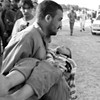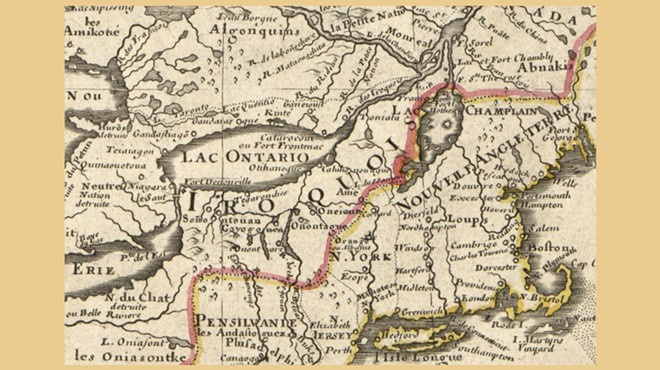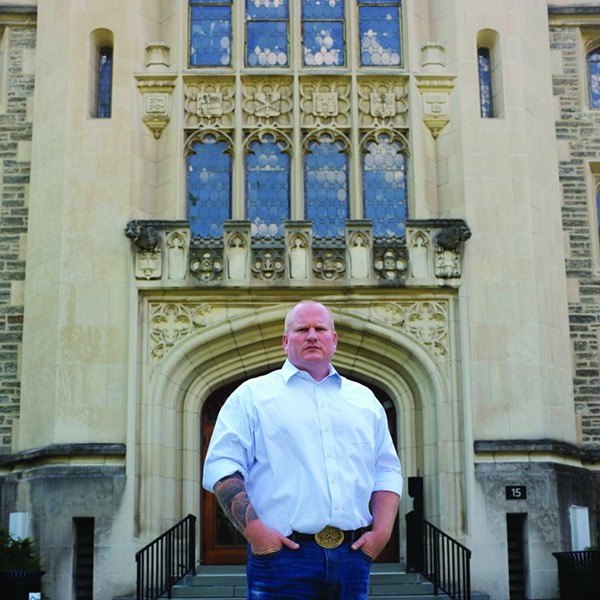As word of the uprising in Fallujah spread through Iraq, Wilding and her friends in Baghdad decided to make a journey to Fallujah on April 11—the day the us agreed to a temporary ceasefire—to deliver food and medicine, and to remove as many wounded as possible. Since then Wilding has returned to Fallujah, bringing in more aid; was kidnapped and released by mujahideen; and is now back in Baghdad. My trusted friend and travel companion in Iraq, Anna Bachman, acts as one of two support people who stay behind when Wilding and friends make these forays, to take action should an emergency arise—such as kidnapping, injury, or death to a member of the group. It is in this context of personal knowledge of the people and the situation on the ground in Iraq that Chronogram brings you this eyewitness account. —Lorna Tychostup
Trucks, oil tankers, tanks are burning on the highway east to Fallujah. A stream of boys and men goes to and from a truck that’s not burnt, stripping it bare. We turn onto the back roads through Abu Ghraib, Nuha, and Ahrar singing in Arabic, past the vehicles full of people and a few possessions, heading the other way, past the improvised refreshment posts along the way where boys throw food through the windows into the bus for us and for the people still inside Fallujah.
The bus is following a car with the nephew of a local sheikh and a guide who has contacts with the mujahideen and has cleared this with them. The reason I’m on the bus is that a journalist I know turned up at my door in Baghdad at about 11 last night telling me things were desperate in Fallujah. He said he’d brought out children with their limbs blown off. The us soldiers were going around telling people to leave by dusk or be killed, but then when people fled with whatever they could carry, they were being stopped at the us military checkpoint on the edge of town and not allowed out. Trapped, they watched the sun go down.
The journalist also said aid vehicles and the media were being turned away—medical aid that needed to go in—and there was a better chance of it getting there with foreigners, Westerners, to get through the American checkpoints. The rest of the way was secured with the armed groups who control the roads we’d travel on. We’d take in the medical supplies, see what else we could do to help, and then use the bus to bring out people who needed to leave.
The Clinic
We pile the stuff in the corridor and the boxes are torn open straight away, the blankets most welcomed. It’s not a hospital at all but a clinic; a private doctor is treating people for free since air strikes destroyed the town’s main hospital. Another clinic has been improvised in a car garage. There’s no anaesthetic. The blood bags are in a drinks fridge and the doctors warm them up under the hot tap in an unhygienic toilet.
Screaming women come in, praying, slapping their chests and faces. “Ummi” (my mother), one cries. I hold her until Maki, a consultant and acting director of the clinic, brings me to the bed where a child of about 10 is lying with a bullet wound to the head. A smaller child is being treated for a similar injury in the next bed. The woman crying “Ummi” is the children’s aunt. We are told a us sniper hit them and their grandmother as they left their home to flee Fallujah.


















